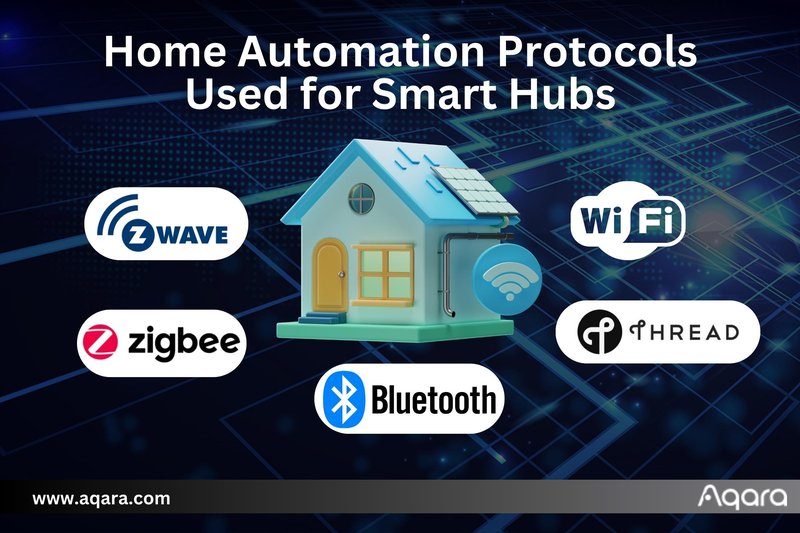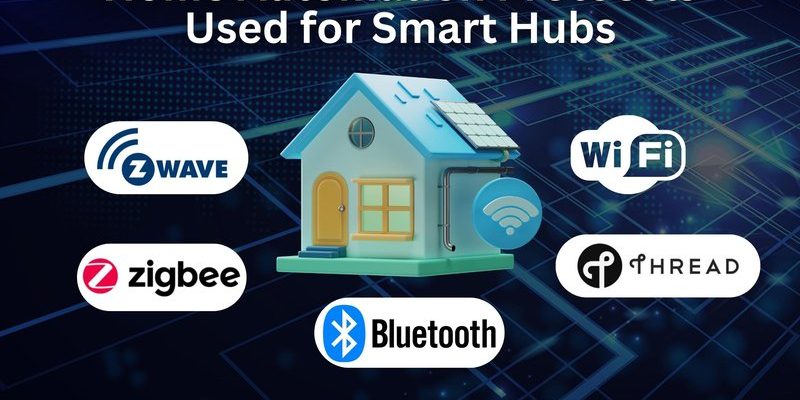
Picture this: your current smart hub is like an old flip phone. It gets the job done but can’t keep up with the fast-paced world of today’s smart devices. A heavy-duty smart hub is like switching to the latest smartphone—it can handle more functions, connect easily, and improve your entire smart home experience. If you’re in the market for a new hub or are thinking about upgrading, let’s explore what this entails and if it’s right for you.
What Is A Heavy Duty Smart Hub?
Before diving into whether you should upgrade, let’s clarify what a heavy duty smart hub actually is. In simple terms, it’s a device that connects and communicates with various smart home devices—think lights, thermostats, security systems, and more. Unlike basic models, heavy duty hubs are designed to manage multiple devices at once, even if they’re from different brands.
These hubs typically support a wide range of protocols, such as Zigbee, Z-Wave, and Wi-Fi. It’s a bit like how some phones can work on various networks, allowing you to use different carriers as needed. A robust smart hub boosts your home’s connectivity and can even enhance functionality, making it easier to control everything through one app or interface.
What’s more, these hubs often come with features like automation and scheduling, allowing you to set routines for your smart devices. For example, imagine waking up each morning to your lights gently brightening and your coffee brewing—all thanks to your smart hub.
Why Upgrade Your Smart Hub?
Now, you might be wondering, “Why should I upgrade my smart hub?” A heavy duty smart hub offers several benefits that can dramatically improve your smart home experience. Here are a few key reasons:
- Increased Compatibility: Many newer smart home devices may not work optimally with older hubs. Upgrading ensures your hub is up-to-date with the latest technologies and standards, providing you with better compatibility.
- Improved Performance: Heavy duty hubs are designed to handle many devices simultaneously without lag. This means you can trust your system to perform reliably, even when you’re multitasking.
- Advanced Features: Features like voice control, remote access, and enhanced security protocols are often more robust in newer models. This can make your life easier and your home safer.
- Future-Proofing: Technology is always evolving. Investing in a heavy-duty smart hub means you can keep your system versatile without needing another upgrade anytime soon.
Ultimately, if you want to expand your smart home ecosystem now or in the future, upgrading might be the right step to take.
Understanding Compatibility Issues
One of the biggest issues with smart home devices is compatibility. You might buy the latest smart light bulb, only to find it doesn’t communicate with your older hub. Upgrading to a heavy duty smart hub tends to solve this problem.
Most modern hubs are designed to support multiple technologies. They can easily communicate with devices that use different protocols. When you consider upgrading, check if the hub can connect to devices from various manufacturers. This flexibility means you can mix and match the best devices for your needs without worrying about compatibility.
Let’s say you have a smart thermostat from one brand and security cameras from another. If your hub can easily sync with both, you’d be able to manage your home’s temperature and security seamlessly from your phone. That’s both convenient and efficient.
Examining Performance and Reliability
Performance is a critical aspect to consider when upgrading your smart hub. Have you noticed that your current hub sometimes falters when multiple devices are activated? That’s often due to limitations in processing power or bandwidth.
Heavy duty smart hubs are built with better specifications. This means they can handle more devices working at once without experiencing lags or drop-outs. It’s like having a busy waiter in a restaurant. Some waiters manage several tables with ease, while others struggle with just one.
Upgrading ensures that your smart home systems are reliable—so when you’re away on vacation and need to check in on your security cameras or remotely adjust your thermostat, you can trust that everything will work smoothly.
Exploring Features You May Be Missing
We’ve touched on compatibility and performance, but let’s dive into the features that set heavy duty smart hubs apart. Advanced performance gives way to innovative tools, which often means a better user experience.
1. Voice Control: Many new smart hubs integrate with voice assistants like Alexa or Google Assistant. This can change how you interact with your home—imagine asking your hub to dim the lights without lifting a finger.
2. Automation: With automation features, you can set routines. For instance, you could program your lights to turn on at sunset, giving you more time to unwind after a busy day.
3. Security Features: Enhanced protocols mean added security for your connected devices, protecting against outside threats.
These features enrich your daily life and enhance the overall efficiency of your home. When considering an upgrade, think about how these capabilities can better support your lifestyle.
Comparing Heavy Duty Hubs to Lower-End Options
It’s easy to get lost in a sea of smart hubs, especially when lower-budget options look appealing. But the investment in a heavy duty smart hub can pay off in the long run. Here are a few points to consider when comparing:
– Device Limits: Cheaper hubs might only support a certain number of connected devices, like a cap on how many friends you can have at your party. In contrast, a heavy duty hub can accommodate many more devices without any hiccups.
– Update Capability: Lesser hubs may not receive regular updates. Without updates, you risk security vulnerabilities. High-end models often have better support for updates, keeping devices both functional and secure.
– Technical Support: Investing in a higher-quality hub usually comes with better customer service or technical support. If you run into issues, having someone knowledgeable to help troubleshoot can be invaluable.
You might save money on a lower-end hub initially, but if you find yourself frustrated with its capabilities later, the costs can add up.
How to Choose the Right Heavy Duty Smart Hub
If you decide to move forward with an upgrade, here’s a quick guide to choosing the right heavy duty smart hub:
1. Compatibility: Make sure the hub supports the devices you already own. Look for features that allow you to easily pair with existing gadgets.
2. User-Friendliness: The interface should be intuitive. Nobody wants to spend hours trying to figure out how to set up their system.
3. Features You Need: Focus on the features that matter to you—whether it’s automation, voice control, or enhanced security.
4. Customer Reviews: Check online reviews. Real users can provide insights into how well the hub performs in everyday situations.
5. Future Proofing: Ensure the hub can adapt to new technology and devices that may come out in the near future.
Making an informed choice can lead to a smart hub that not only meets your immediate needs but grows with you and your tech-savvy lifestyle.
In conclusion, upgrading to a heavy duty smart hub can transform how you interact with your home tech. It’s about convenience, efficiency, and the flexibility to adapt as your needs evolve. If your current setup feels limiting, it might be time to consider the perks of a robust smart hub. Whether you’re a tech enthusiast or just wanting a more streamlined home, an upgrade could be just the ticket to a more connected, less complicated lifestyle.
